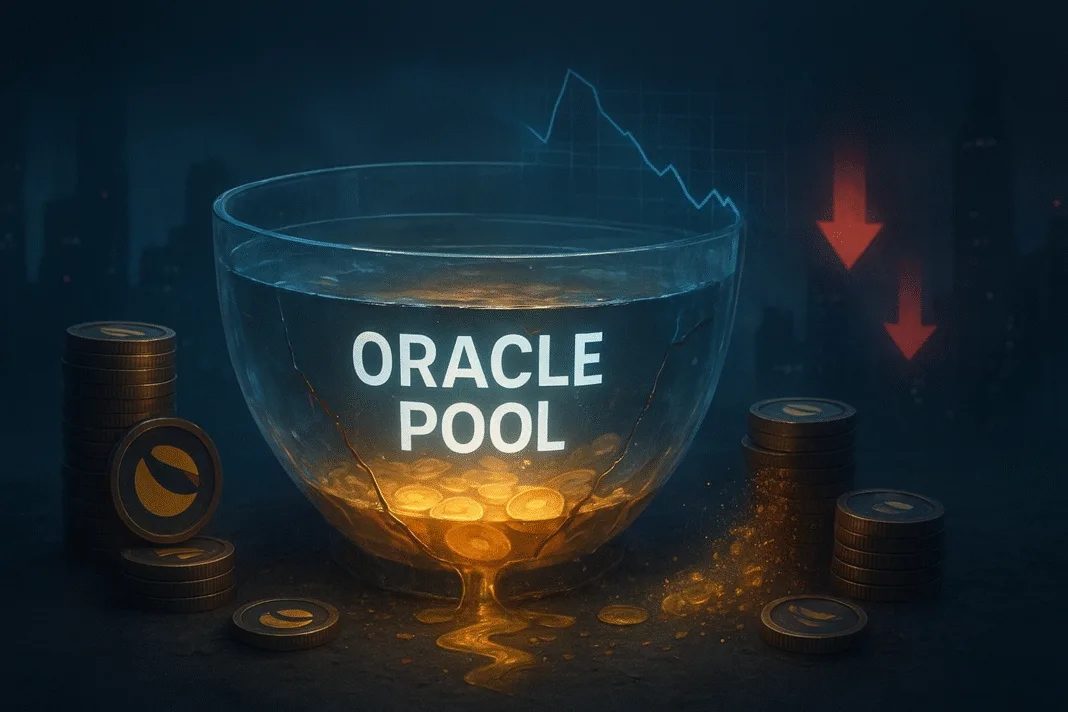The Terra Classic Oracle Pool, a vital component of the Terra Classic ecosystem, is facing a critical decline in its $LUNC and $USTC funds. This pool, essential for providing staking revenue to validators and users, is funded by 10% of the burns on the Terra Classic chain. Despite these inflows, the pool’s reserves are shrinking, leading to a significant reduction in the Annual Percentage Rate (APR) for $LUNC staking.
Currently, the Terra Classic Oracle Pool holds 63.9 billion $LUNC. While this may seem substantial, it is a small fraction of the 6.5 trillion $LUNC total supply. The diminishing funds directly impact staking returns, threatening the ecosystem’s sustainability. As the APR for $LUNC and $USTC staking decreases, fewer users are motivated to stake, and validators—many already operating at a loss—struggle to continue their services. The low market value of $LUNC and $USTC further complicates the situation, making it challenging to attract and retain validators crucial for the chain’s security.
The decline of the Terra Classic Oracle Pool raises serious concerns about the long-term viability of the Terra Classic chain. For the pool to remain effective, $LUNC and $USTC prices must rise significantly. Without this, the ecosystem risks reduced staking participation and validator support, undermining its stability.
Reactivating the Market Module is essential to address these challenges. This step could stabilize the Terra Classic Oracle Pool, enhance validator incentives, and restore confidence in the ecosystem. The Terra Classic community must act swiftly to reverse the decline and unlock the chain’s bullish potential.

